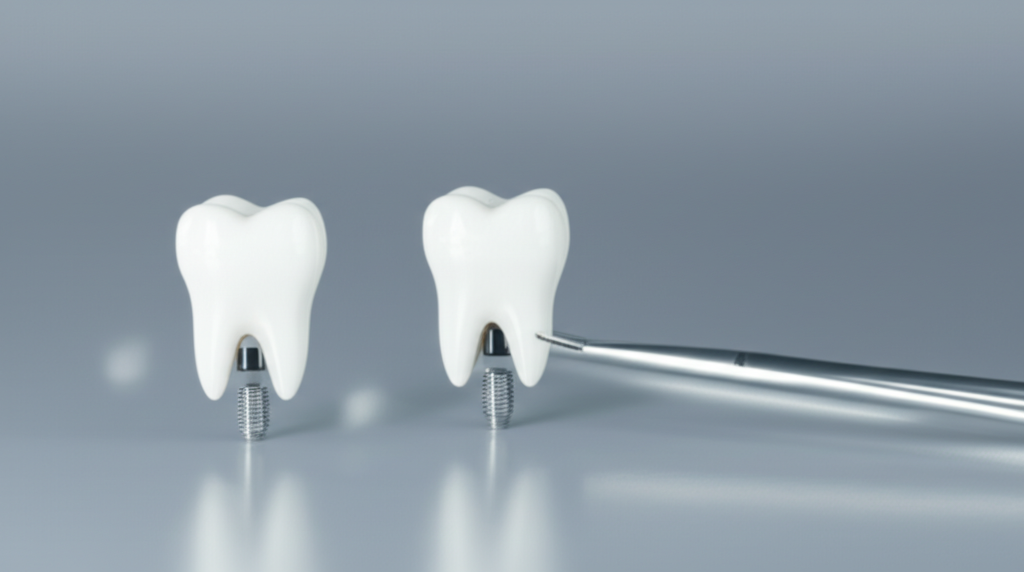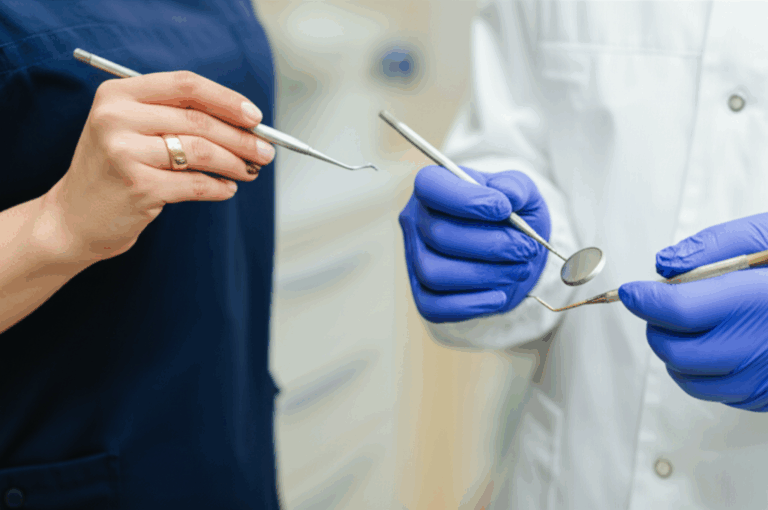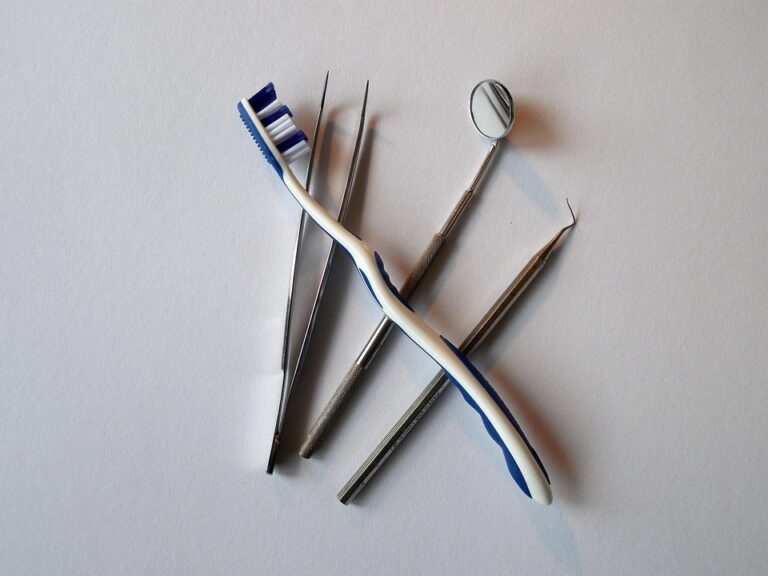
Can Plaque on Teeth Cause Heart Problems? Understanding the Oral-Systemic Link
By someone who has walked the walk with dental health and heart concerns.
Introduction: Why This Matters to Me
If you told me years ago that something as simple as brushing my teeth could change my risk for heart disease, I probably would have laughed. Like most people, I kept dental plaque and heart health in two totally separate corners of my mind. It wasn’t until I started dealing with bleeding gums and, not long after, a scary moment with my blood pressure that I made the connection.
That’s why I’m sharing my story, what I know now, and why this isn’t just some “good advice” busy people should ignore. In this article, I’ll lay out the link between the gunk on your teeth and your heart, explain the science in a clear way, and share real-life steps I now take. If this helps you worry less (or avoid my stress), great.
Table of Contents
- What Is Dental Plaque? (And Why Should You Care?)
- The Journey from Plaque to Gum Disease—My Hard-Learned Lessons
- How Oral Bacteria and Inflammation Affect Your Heart (What I Learned the Scary Way)
- Which Heart Problems Are We Really Talking About?
- Who Needs to Be Extra Careful? Assessing Your Personal Risk
- My Best Tips for Protecting Your Heart (and Mouth)
- When You Really Should See a Professional
- What the Science Says: Real Data and Surprising Facts
- Final Thoughts: Why I Take Oral Health Seriously—And You Should Too
What Is Dental Plaque? (And Why Should You Care?)
Most of us have heard dentists talk about plaque, but if you’re like me, you probably tuned out. For years, I rushed brushing and hardly ever flossed. I didn’t know what plaque really was or how it just keeps coming back.
Dental plaque is a sticky film, called “biofilm” by dentists. It’s made up of germs, bits of food, and spit. This film keeps forming on your teeth, especially if you eat sweet or starchy foods. The germs in plaque eat leftovers from your food and make acids that can bother your gums.
Why should you care? Because if you don’t get rid of plaque, it can cause gum swelling. And after that, things can go downhill faster than you think.
The Journey from Plaque to Gum Disease—My Hard-Learned Lessons
Here’s what I went through, step by step. First, I saw that my gums looked red and a little puffy after brushing. Sometimes they bled, but I figured I was just brushing too hard. This early part is called gingivitis, and you can fix it if you act soon enough—but it was a red flag I missed.
If you leave plaque alone, it hardens into “tartar” (dentists call it calculus). This is when you can get periodontitis, which is bad gum disease. It’s not just sore gums; it actually starts to wear away the bone. When I finally saw my dentist, I heard “bone loss” and realized how bad things had gotten.
But it wasn’t just my teeth. I soon learned that these problems with gums could also reach the rest of my body. That included my heart.
How Oral Bacteria and Inflammation Affect Your Heart (What I Learned the Scary Way)
The germs and plaque in your mouth don’t always stay put. My dentist told me that gum disease keeps your mouth slightly inflamed all the time and gives bacteria a chance to get into your blood. When she explained how mouth problems can hit your heart, I paid attention.
Here’s how it works:
How Do Bacteria Get from Your Mouth to Your Heart?
If you’ve got gum disease, your gums are swollen and not tight. So every time you brush, floss (if you do), or chew on something crunchy, germs can sneak through tiny openings and get in your blood.
This can happen even more if your gums bleed. The germs then travel around your body and can stop in places like the inside of the heart or in blood vessels that are already weak.
Systemic Inflammation: The Hidden Enemy
Swollen gums don’t just mean pain in your mouth. Your body sees the germs as threats and sends out “flags” called inflammatory markers like C-reactive protein (CRP). If this goes on and on, your arteries can take a beating. Doctors check CRP when they test for heart issues.
I was surprised when my blood test showed higher CRP, and my doctor asked about my dental care. She told me that swollen gums can help cause things like atherosclerosis—that’s when your arteries get hard and narrow.
When Your Immune System Overreacts
Sometimes, the body’s own defenses cause more trouble. The germs from your mouth can make the walls of your blood vessels sticky, which can start clots. Those clots can block blood flow and lead to a heart attack or stroke.
So, not brushing and flossing doesn’t just give you bad breath—it makes your body work harder and raises your heart risk, too.
Which Heart Problems Are We Really Talking About?
You might be thinking, “Isn’t this pretty rare?” That’s what I thought. But then I looked up what groups like the American Heart Association and the CDC say.
Atherosclerosis and Coronary Artery Disease
- When germs from your mouth get into your blood, they can get into the walls of your arteries.
- Scientists have found DNA from mouth germs inside the plaque that clogs heart arteries in people with coronary artery disease.
- The worse your gum disease, the higher your risk for hardening of the arteries, heart attacks, and even stroke.
The link is strongest if you have bad gum disease, but even not-so-bad cases matter.
The Risk of Bacterial Endocarditis
I hadn’t heard of this until I started researching: Infective endocarditis is an infection of the inside lining of your heart, usually the valves. If you have fake heart valves, a history of valve trouble, or were born with certain heart problems, you’re at higher risk. For you, germs from your mouth could cause a very serious infection.
Stroke and Other Emerging Concerns
Some studies show a clear link between gum disease and strokes, likely because of the same germs and swelling that mess up heart health. There might even be ties to things like heart failure or high blood pressure, but those are still being studied.
All in all, the link is strong enough that both tooth doctors and heart doctors say to take gum disease seriously—especially if you have other heart risks already.
Who Needs to Be Extra Careful? Assessing Your Personal Risk
As I read more, I saw I had several risk factors. Do you?
- People with Gum Disease: If your gums bleed, swell, or you’ve been told you have periodontitis, your risk is up.
- People with Heart Trouble: Fake heart valves, past endocarditis, or old heart valve problems all make it easier for germs to harm your heart.
- People with Diabetes: Gum disease and diabetes make each other worse, and both can hurt the heart. If you have diabetes, you need to care for your mouth even more.
- Smokers: Not easy to quit, but smoking is bad for both gums and hearts.
- Sloppy Brushing/Flossing: Missing brush or floss, skipping dentist visits, eating lots of sugar—these all raise your chances.
- Family History: Some families just have more problems with gums or hearts. Genes matter; in my case, they sure did.
Even if none of these fit you, keep an eye out. Heart disease is one of the biggest killers, and gum disease is way more common than you think.
My Best Tips for Protecting Your Heart (and Mouth)
When I realized my gums and heart could affect each other, I changed my habits—and it paid off. Here’s what helped me.
Daily Habits That Made All the Difference
- I started brushing twice every day with fluoride toothpaste. It takes just a few minutes, and now I won’t skip it.
- I used to think flossing didn’t matter, but it was what I was missing. It gets food and germs my brush can’t reach.
- I added a mild antibacterial mouthwash. There are lots out there, so ask your dentist which is best.
The Role of Dentist Visits and Professional Help
- Getting cleanings at least twice a year stops tartar from turning into a real headache. My dentist pointed out things I missed—early, so we could fix them fast.
- If you already have gum disease, you might need a deeper cleaning (like scaling/root planing), some medicine, or even tiny surgery.
- Getting expert help is important. For bigger dental work (like crowns or implants), using a pro china dental lab or a digital dental lab can mean better care for your teeth—and your whole body.
Lifestyle Choices That Count
- Quit Smoking: It took more than one try, but quitting helped my gums and dropped my heart risk all at once.
- Control Diabetes: When I keep my blood sugar steady, my gums and teeth do better too.
- Eat Smarter: I cut back on sugar, eat more veggies and grains. Not perfect, but it’s helped a lot.
- Lower Stress: Too much stress also hurts your body’s defenses, including your gums and heart.
When You Really Should See a Professional
I waited until my mouth hurt to see a dentist—big mistake! Don’t ignore these signs:
- Constant bleeding gums (not just a one-off)
- Bad breath you can’t get rid of
- Loose teeth, or teeth shifting around
- If you have a heart condition or need antibiotics before dental work
- If something just feels wrong with your mouth—or your heart
If you’re not sure, ask your dentist. They can catch things early and can talk with your doctor if you already have heart problems.
What the Science Says: Real Data and Surprising Facts
I read a ton on this topic. Here are a few numbers that stuck with me, and made me stick with proper dental care.
| Link | What it Means for You | Key Stats |
|---|---|---|
| People with gum disease are 20-50% more likely to get heart problems | Swollen gums and plaque up risk for heart attack and stroke | Up to twice the risk in bad cases |
| Germs from the mouth show up in 50-70% of heart artery plaques | Same bugs in your mouth clog up heart arteries | DNA from germs like P. gingivalis found in most plaques |
| Dental work causes 10-15% of endocarditis in heart patients | Bigger risk if you have valve problems | Always tell your dentist about heart trouble |
| Treating gum disease lowers swelling by 10–20% | Healthy mouth helps your whole body | In some, blood sugar (A1C) drops by 0.4% (good for diabetics) |
These numbers are real—they’re from big reports by groups like the American Heart Association and the European Federation of Periodontology.
There’s a money side, too. If everyone took better care of their teeth and gums, health care bills for heart disease, diabetes, and other problems could drop by billions.
Final Thoughts: Why I Take Oral Health Seriously—And You Should Too
I can’t think of another part of health where small, simple things each day make such a big difference. By seeing my dentist, tweaking my habits, and taking my gum health as seriously as my heart, I’ve felt better and stressed less.
If you’re reading this to get answers or just ease your mind, let my story give you a push. Your mouth and your heart are more connected than you think. Brushing, flossing, and seeing a dentist are the basics—but knowing why makes it easier to stick with.
Never be shy asking your dentist or doctor questions. If you need special work, find a good clinic or lab, like a trusted crown and bridge lab or one with implant dental laboratory skills. Quality matters.
If you start caring before problems get bad, you’ll thank yourself. I sure do—and my heart is better for it.








